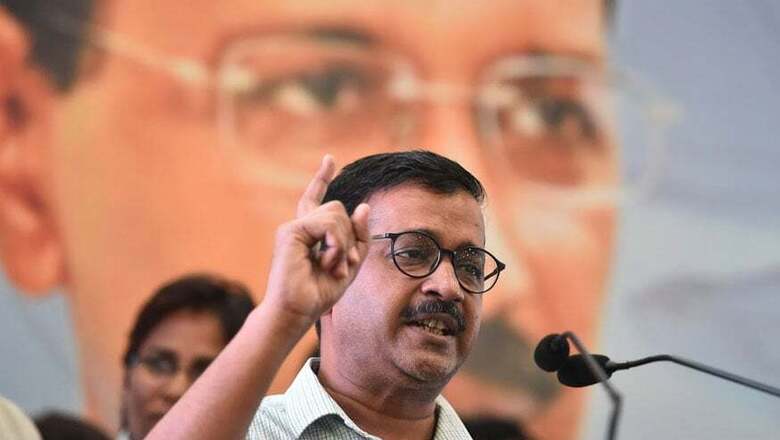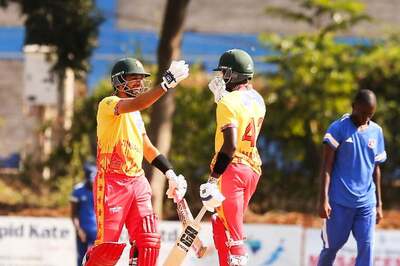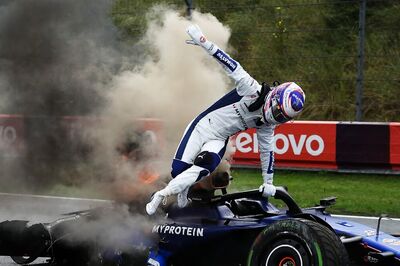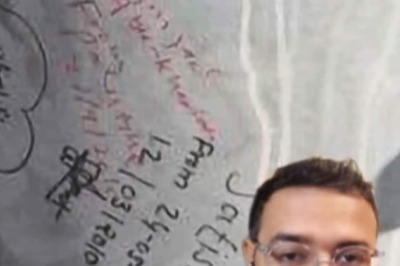
views
Three days after police action in Jamia Millia Islamia galvanised opposition nationwide to the controversial Citizenship Amendment Act, Delhi chief minister Arvind Kejriwal came out in strong defence of the students as he condemned the violence in the university campus.
“It’s not possible that students could set the buses on fire,” he told News18 on Wednesday. Pointing at “vested interests” behind the violence, Kejriwal called for an investigation into the incident and stringent action against the guilty. “People are unhappy, people are hitting the streets, is anyone provoking students across thirty-three universities?” he questioned.
For the first time since the enactment of the Citizenship Amendment Act, which Kejriwal’s Aam Aadmi Party (AAP) had opposed in the Parliament, the chief minister spoke extensively and unambiguously against the law.
“My suggestion to the central government is that this is a very dirty law, I don’t know why it was enacted. The entire country is on fire, let them withdraw the law and call a meeting of all the chief ministers to thrash out ways to provide jobs, tackle price rise, fight economic slowdown, re-start factories that have shut down – let the focus be on that.”
Trying to steer away the debate from just the Hindu-Muslim, Kejriwal said if an all-India NRC (National Register of Citizens) exercise is held, it would be the poor who would stand to lose the most, as he pointed out was the case with another Modi government scheme: demonetisation.
“I heard a statement by Amit Shah yesterday in a channel — that those who will not have documents, whether that person is a Hindu or Muslim, will be thrown out…in this country 70% of people do not have documents. The poor do not have documents. And the rich will get their documents made after paying a hefty price,” he said.
Combining the CAA and the NRC in one narrative, the Delhi CM said while the government wants to give documents to non-Muslim immigrants from neighbouring countries and make them citizens, it wants to do the opposite to Indians – ask them to get documents verified or be thrown out of the country.
“Those who come from there (Pakistan, Bangladesh, Afghanistan) will not have documents. So who will provide them with documents? The Government of India. In our country, when the NRC exercise happens, what will happen to those who do not have documents? Will they be thrown out of the country?”
Criticising BJP’s argument in the citizenship debate, Kejriwal argued, “In Bangladesh, Pakistan and Afghanistan there are nearly three crore non-Muslims. Even if half of them come to our country, who will give them jobs? Where will they be settled? How will housing be provided for them? Will you settle them in Delhi, Mumbai, Gujarat, Assam or Tripura? Today, our children are not able to get jobs. Our aim should be to provide them jobs and we are worried about giving jobs to Pakistanis, Bangladeshis and Afghanistanis.”
Highlighting the economic slowdown in the country, Kejriwal questioned the timing of the law. “Today, the price of onions has reached Rs 200, the price of potatoes is steadily rising, price rise taking a huge toll, the economy is in a dire state, all factories are shutting down. Was the CAA the only issue? What was the need to set the country on fire? Our students are being rained with lathis, girls are being beaten up inside their hostels, students from thirty-three universities are on the roads”.
The chief minister, who commonly uses terms like ‘aam aadmi’ (common people) and ‘janata’ (public), on Wednesday used the term ‘nagrik’, signalling the importance of the citizenship for the people.
Recalling his own days as a student in IIT between 1985 and 1989, the chief minister wondered if he could have been able to afford the education had it not been for the monthly fees of Rs 32 and scholarships. “I want to tell all governments that education budgets should not be slashed,” he said in support of the JNU protests against the fee hike.



















Comments
0 comment